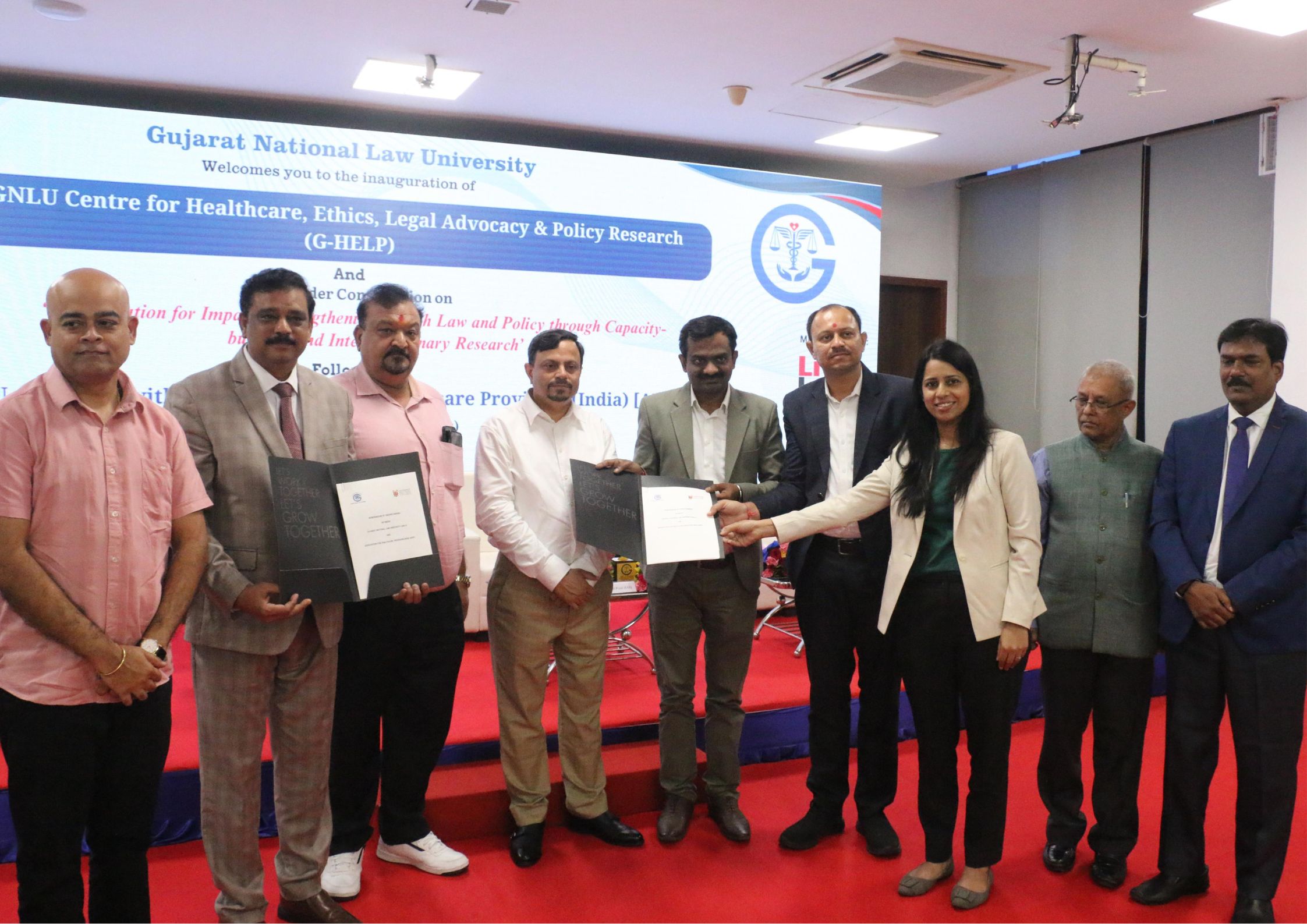GNLU, Centre For Healthcare, Ethics, Legal Advocacy And Policy Research

Gujarat National Law University, Gandhinagar has inaugurated the GNLU Centre for Healthcare, Ethics, Legal Advocacy and Policy Research [G-HELP] in the presence of the Director of the institute Prof. (Dr.) S. Shanthakumar, the Registrar Dr. Jagdeesh Chandra T G and the chief guest Mr. Harshadkumar Patel, Commissioner of Health, Medical Services and Medical Education for the Govt. of Gujarat. The event was also attended by various other experts in the field of healthcare and law. In his inaugural address, Dr. Harshadkumar emphasized on the emerging potential of the Indian healthcare sector, stating that the sector is projected to become a $372 million industry in 2024.
Dr. Nitin Vora, President of the Gujarat Medical Council in his special address highlighted the need of this research centre by discussing the emergence of medical negligence cases in the recent times where there is misuse of law for mala fide intent. He mentioned that in every 2000 patients being treated, 1 would go to court. Out of these 0. 05% cases, 70% are dismissed by the courts at first instance, reflecting the lack of truth and reasonability in them. He also discussed the concerning number of cases where doctors are mistreated by patients, going as far as physical abuse. Talking about the urgent need for a better support system for PG doctors, Dr. Vora stated that 20% of resident doctors in India are suffering from depression as per reports while 17% of them have even tried to commit suicide atleast once in their life.
The event also witnessed the MoU exchange between GNLU and Association of Healthcare Providers (India), promising a longstanding collaboration in research and capacity building in the intersection of law and healthcare. The inauguration event was followed by a stakeholder consultation where all the experts gathered to discuss the scope of collaboration with the newly formed centre in their respective areas of expertise.
Dr. Pratima Murthy, the Director of NIMHANS, Bengaluru advocated for bridging the gap between mental health and law. She highlighted the dire condition of mental hospitals in the country, stating that previously mental hospitals were worse than jails with colonial practices like chaining up, roll call etc. being followed and many hospitals have still not abandoned these practices. She also highlighted the importance of focusing on patient’s consent in availing mental treatment since most patient admissions in mental hospitals are involuntary. Dr. Murthy highlighted how forensic psychiartric services are grossly overlooked in India since most prisoners do not have any mental health checkups on a regular basis. Death Row convicts are particularly vulnerable to serious mental disorders such as childhood trauma and even physical trauma like epilpesy. A study in Bangalore prisons revealed that over 2/3rd of the prisoners had a mental or substance abuse disorder, highlighting the urgent need for mental health services to be lawfully implemented and regulated in prisons to ensure a more just and reformative society.
Other significant topics in the discussion were patient’s rights and social justice, specially for persons suffering from chronic infectious diseases such as leprosy and issues in following legal norms POCSO cases for hospitals. The key outcome of this discussion was the suggestion to introduce a helpline number for doctors to address medico-legal issues. The stakeholder consultation ended with many prospective research and capacity building collaborations for G-HELP to look forward to.
link






